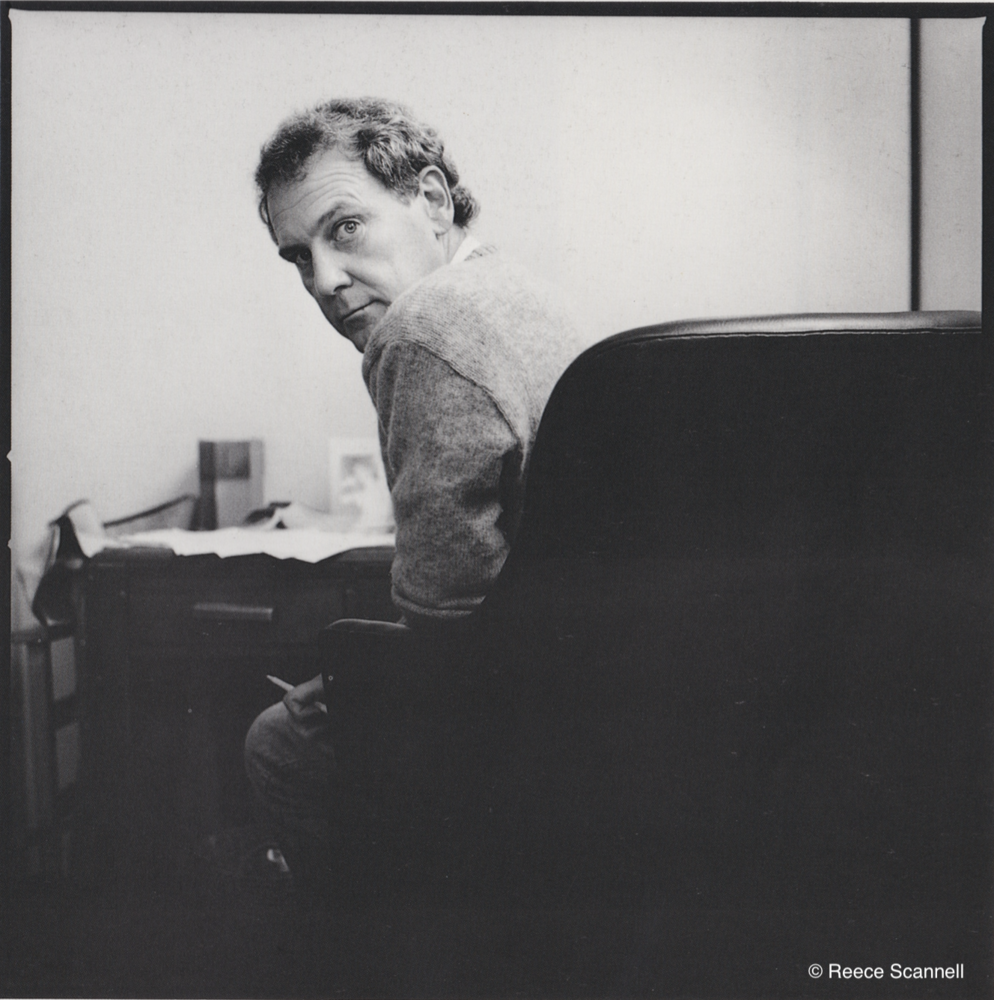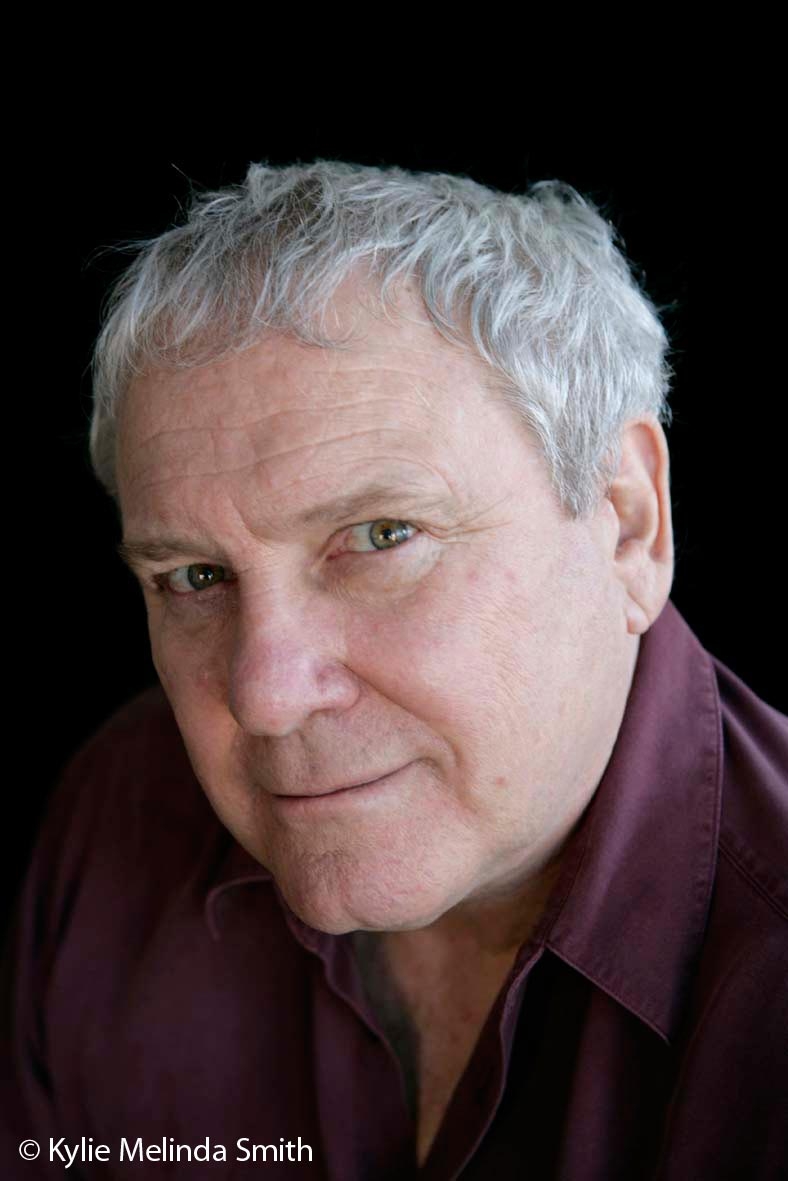6.07.22
‘Writers should not forget that we have special talents and a special status in society. And we can use this status and talent to win our rights in the hard world of economics.’ - Frank Moorhouse, Colin Simpson Memorial Lecture 2015
 The ASA was deeply saddened to hear of the passing of Frank Moorhouse AM, acclaimed writer, powerful activist and tireless advocate for authors.
The ASA was deeply saddened to hear of the passing of Frank Moorhouse AM, acclaimed writer, powerful activist and tireless advocate for authors.
Moorhouse was a literary giant, as prolific as he was highly-esteemed, and he had a profound impact on his peers and the book industry at large.
Celebrated author Tom Keneally says, ‘Frank seemed to emerge, like all gods, without any limiting background, in the 1960s. Many of us felt uneasy about the time, whereas Frank was its laureate! Look at The Electric Experience, a masterpiece, and encapsulation of Australian culture to this day! He was also one of the first who avowedly set forth to be a professional writer and to introduce Australians to the professional writer as a previously unacknowledged career avocation. And in the spirit of that, with aid from Colin Simpson and Barbara Jefferis, he took copyright seriously, more seriously than most of us. He had a massive part in PLR and ELR, and even more so in photocopying compensation and the issues looked at by the Copyright Agency. He was both a literary genius and an endlessly active member of the ASA, and his fight was copyright! He left a number of inheritances to the rest of us: his work, which is uniquely memorable, and the copyright safeties we all depend on and under which we write. And so we do what he would have most liked, and in front of our half-written MMS and with a glass in hand we say, “Here’s to you, Frank, cool kid from Nowra. You were in all things a pro!”’
Moorhouse received many honours and awards across the span of his career for his short stories, novels, essays and scripts for TV and film. These include the 1988 Australian Literature Society’s gold medal for his novel Forty-Seven, the 2001 Miles Franklin Literary Award for Dark Palace, a Walkley Award in 2007 for Social Equity Journalism, and the 2012 Queensland Literary Award for Fiction for Cold Light.
Moorhouse’s former publisher, Jane Palfreyman says, ‘Frank was an astonishing talent, a true original and one of our finest writers. Working with him on those momentous League of Nations novels, Grand Days and Dark Palace, and his quirky and intoxicating Martini: A Memoir were huge life highlights for me. I was quite young and completely dazzled by him and his writing and what could have been an overwhelming and intimidating experience for me was made to seem like the greatest fun in the world, as well as a thrilling intellectual experience because of his warmth, respect and generosity of spirit. To work with Frank was to be wholeheartedly welcomed into his mind and world: hard work in the morning, then an excellent lunch followed by more instinctive work in the afternoon, and then the inevitable martini or many. Frank Moorhouse is a true and singular genius of Australian Literature and his books will live forever and be a perpetual measure of his brilliance and originality. We were so lucky to have him.’
Moorhouse was also made a Member of the Order of Australia in 1985 for his service to literature, and in 2013, was awarded the Australia Council Award for Lifetime Achievement in Literature, where he was recognised for both his inventive writing, and his advocacy for the literary community.
Deputy Chair of the ASA, Sophie Cunningham, was the Australia Council Literature Strategy Panel Chair at the time. Sophie says, ‘Frank Moorhouse has had an enormous influence on Australian literary life. He was an extraordinary writer, thinker and creative bureaucrat. His political work, his writing and his engagement with the Australian literary scene was transformative for both his peers and the generations that have followed him. As a writer he was both groundbreaking and a classicist —whatever the work required. Speaking personally it’s not too much of a stretch to say that one of the reasons I wrote my most recent novel is because Moorhouse lit the way when it came to writing about queer and political lives.’
Moorhouse also left an unparalleled legacy as a relentless campaigner for rights and protections for Australian creators. He was instrumental in founding the Copyright Agency in 1974, to ensure that creators were compensated for the large-scale copying of their work by educational institutions. Moorhouse gave permission for his work to be used in a copyright test case - the Moorhouse case - which concluded with the decision that an agency would need to be established to collect the fees generated by the copying of copyright-protected material. Thus, the Copyright Agency was born.
Moorhouse also served as President of the Australian Society of Authors from 1981-83, and a member of the esteemed ASA Council.
 Former CEO of the ASA and publisher, Juliet Rogers says, ‘The ASA and writers throughout Australia, owe Frank Moorhouse a huge debt of gratitude, not only for his legacy of wonderful writing, but also for his unswerving support and fierce advocacy on their behalf over so many years. But like so many people who met or knew Frank, I owe him more personal thanks. In my early days in Sydney, life as the Kiwi sheila in publishing was daunting and never more so than at my first publishing party. Frank was of course there. He read my apprehension as I tried to look at ease in a room full of people I barely knew, and he quietly came over and we talked, really talked for much of the evening. While the conversation was engaging and stimulating, it was ultimately his generosity of spirit and utter kindness that have stayed with me for the last 20 years. The gap he will leave in our world is wide and deep.’
Former CEO of the ASA and publisher, Juliet Rogers says, ‘The ASA and writers throughout Australia, owe Frank Moorhouse a huge debt of gratitude, not only for his legacy of wonderful writing, but also for his unswerving support and fierce advocacy on their behalf over so many years. But like so many people who met or knew Frank, I owe him more personal thanks. In my early days in Sydney, life as the Kiwi sheila in publishing was daunting and never more so than at my first publishing party. Frank was of course there. He read my apprehension as I tried to look at ease in a room full of people I barely knew, and he quietly came over and we talked, really talked for much of the evening. While the conversation was engaging and stimulating, it was ultimately his generosity of spirit and utter kindness that have stayed with me for the last 20 years. The gap he will leave in our world is wide and deep.’
Introducing Frank Moorhouse at the ASA’s Colin Simpson Memorial Lecture in 2015, author and former Executive Director of the ASA, Angelo Loukakis, described him as a ‘Bon vivant and Boulevardier and, of course, hero of the ASA,’ going to say, ‘As an author Frank’s achievements are prodigious. The Edith novels and his Miles Franklin win, but many of us also know him as one of the best short story writers ever to appear in this country. The American’s Baby, The Electrical Experience, these and other collections of his were ground-breaking books, books which certainly influenced my own writing and the writing of numerous other Australian authors over the years.
‘This is also a person who has worked over a long period, beginning way back, on behalf of the rights and welfare of Australian authors, as well as in the interests of Australian readers. When I said Frank is a hero of the Australian Society of Authors, I really mean it. As a member of PEN he was there to support writers around the world who have been imprisoned for daring to write and speak as they wish to write and speak.’
Author Stephany Steggall says, ‘Frank knew better than most that 'the writer is obliged to ever bargain for the resources to write - for the chance to do their best with their talents.' He engaged in many battles on behalf of Australian writers during his highly valued association with the ASA. Frank, we salute you.’
We will remember Frank Moorhouse with fondness, admiration and deep respect. Our sincere condolences to all who knew and loved him. Vale.
‘The world was not changing in quite the way she had planned, but she did, she hoped, change the world a little as she passed through.’ - Frank Moorhouse, Dark Palace
Keep up-to-date with ASA advocacy, support and advice
with our fortnightly newsletter.